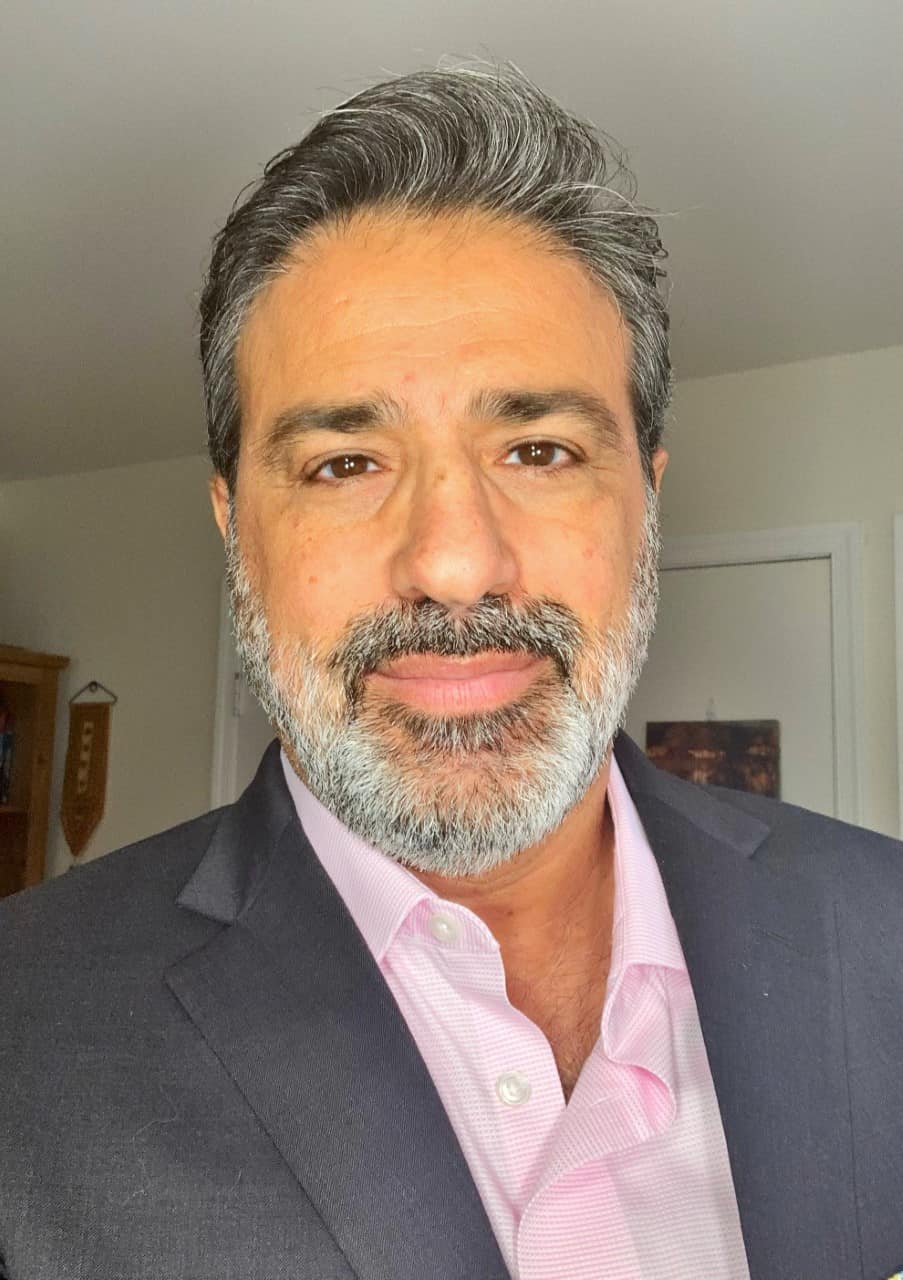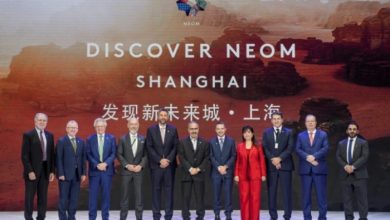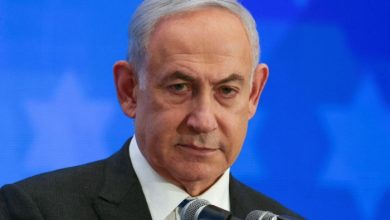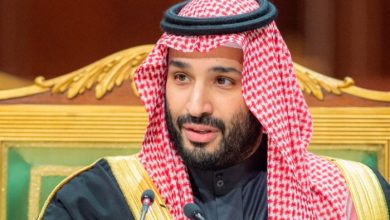Iranian regime is likely behind the attempted assassination of the Iraqi Prime Minister: Abbas Dahouk

Since the 1979 revolution, the Iranian regime has been a source of conflict in the Middle East. Iran has managed to build a network of proxies across the region, allowing it to wield influence.
“The Iranian regime is playing a dangerous game in the region,” US Army Colonel (Ret.) Abbas Dahouk told Leaders MENA.
Dahouk is a former Military Advisor for the Bureau of Near Eastern Affairs in the Department of State.
The Iranian regime has been projecting power across the region through its proxies, not only in Iraq but in Lebanon, Syria and Yemen as well.
According to Dahouk, Iran was behind the Iraqi Prime Minister assassination attempt, in a bid to create leverages toward favorable nuclear talks with the P5+1.
Leaders MENA interviewed Dahouk on all the aspects of the Iranian influence in the region, their proxies in Lebanon and Yemen, as well as the resumption of the Iran nuclear deal talks.
How do you view the latest seizure of tankers by Iran in the Sea of Oman?
The Iranian regime is playing a dangerous game in the region. They are constantly defying international laws and interfering in the internal affairs of neighboring countries, and frankly, it’s a matter of time for a miscalculation on their part which will be costly in terms of lives and property for all involved. The tanker in question is owned by a Vietnamese company and waves the flag of Vietnam. However, open news sources reported that the tanker was chartered, most likely by the IRGC, to transport Iranian crude oil to China but was rejected by China and sent back to Iran due to international restrictions. We also know, and despite US sanctions, the Iranian regime has been shipping oil to Asian destinations, mainly China. It seems the US Navy was monitoring this most likely illicit activity of oil smuggling and sailed closer to the tanker to observe and report its activities. Outside self-defense, the US Navy will not directly interfere in such activities without actionable intelligence and coordinated multinational decision for action. Knowing that, and that’s my opinion, I believe the IRGC, a designated terrorist organization, saw an opportunity to simultaneously divert attention from the tanker’s illicit activity of oil smuggling and to produce a propaganda film showcasing their maritime military power. The timing for releasing this propaganda film is also orchestrated to create leverage in the JCPOA negotiations with the US. I would like to add for clarity here that the US Navy ships involved in this case were a part of the Combined Maritime Forces (CMF) from many countries to include the Kingdom of Saudi Arabia with a mission to patrol the bodies of water around the Arabian Peninsula in order to track all maritime activities within the international waters of the Red Sea, Gulf of Eden, Sea of Oman and the Indian Ocean. The CMF’s specific mission is to disrupt criminal and terrorist organizations and their illicit activities by restricting their freedom of maneuver on the international waterways and shipping lanes. It is important here to note that the CMF has no authority to stop ships without clear actionable intelligence, full compliance with the Laws of the Seas, and coordinated political decisions to board and seize ships or to deny their freedom of movement. And contrary to Iranian claims, the US Navy had no intentions to seize a tanker. A final relevant note to mention on this topic is that the current commander of the CMF is an Admiral from the Royal New Zealand Navy.
In your opinion was Iran behind the attempted assassination of Iraqi PM Mustafa Al-Kadhimi as it appears to have Kataib Hezbollah and Asaib Ahl al-Haq fingerprints all over it?
Defiantly! My observations lead me to believe that the Iranian regime is behind the attempted assassination of the Iraqi Prime Minister. Such a bold ariel drone strike against the highest authority in Iraq would not have been executed without approval from a high-level Iranian official. Additionally, the PM’s house was hit by an explosive-laden drone that is very similar to the ones possessed, paraded and deployed by Iranian proxies not only in Iraq but in Lebanon, Syria and Yemen as well. While it’s hard to command and control rogue militias, especially after the killing of their former leader Qasim Suleimani, the Iranian-backed rogue militias and by design have some flexibility to independently operate within their sphere of influence. This operational flexibility provides the Iranian regime with a veil of deniability. As seen in the open press, the Iranian regime leadership condemned this assassination attempt on the PM. US officials across both political parties find PM Al-Kadhini as the most capable and trusted leader in Iraq to rebuild ties with neighboring countries, counter ISIS, and resist Iranian regime’s hegemony. There is an ongoing Iraqi investigation, and the US is helping, to learn more about the origins of the drone parts and the nature of its explosives.
Will the US help Iraq consolidate and control the People’s Mobilization Forces (PMF) militarily and politically to restore the country’s sovereignty and ensure the future viability of the state?
I don’t think the US will interfere in how the Iraqi government wants to treat the PMF within its security forces. As you know, the PMF is not a monolithic organization, and the US is mainly concerned about the Iranian-backed militias within the PMF. The former Iraqi Prime Minister Adel Abdul Mahdi wanted the PMF to be both “honored and contained.” I believe the Biden Administration would agree with that approach. Generally, the US military will continue to advise, assist and enable the Iraqi security forces in order to protect Iraq’s territorial integrity and to counter ISIS. I foresee the rogue elements of the PMF continuing to undermine the authorities of the Iraqi institutions and harassing US diplomatic and military in-country presence, but they will not be effective. It would also be difficult to disarm them if the Iranian regime continues to support them.
How are both events linked to the resumption of the Iran nuclear talks?
Both events are foreign policy tools for the Iranian regime designed to create leverages toward favorable nuclear talks with the P5+1 with aims to secure relief of all US sanctions imposed by the Obama and Trump Administrations, to have access to international banking systems, and to re-enter the crude oil market. Furthermore, the Iranian regime desires to look strong in the eyes of the neighboring countries and its proxies in the region.
In your opinion, is there any chance to revive the Iran deal? Does the Iranian regime stall to buy time to gain nuclear expertise shortening the time it might need to race to build a bomb?
Reviving the nuclear deal as implemented in 2015, which covers Uranium enrichment and technical issues only, is no longer sufficient to deal with today’s Iranian regime. Lengthening and strengthening nuclear constraints on Iran are necessary, but not enough as well. Whereas US sanctions are reversible, the knowledge of the enrichment process gained by Iran thus far is not reversible. All negotiators, the Biden Administration and the rest of P5+1 must push hard on the Iranian regime to address the full spectrum of the Iranian threat from spreading terror on land and sea, to sponsoring rogue proxies in neighboring countries, launching armed drones and ballistic missiles against the US and its allies. Otherwise, Iranian regime officials will continue to limit the discussion and keep it tailored and limited to nuclear talks. I think Iran is on its most advancing stage ever in its race to build a nuclear bomb and a political decision away from becoming a nuclear nation. The Biden Administration is committed to diplomatic efforts in dealing with Iran. However, the patience of Israel and Gulf counties are running out and are hedging the US and P5+1 to do more. On the military side, a preemptive military strike against Iran’s nuclear facilities is also not sufficient to destroy their nuclear program, but it will delay it. Should the US decide to use military force against Iran, it has a range of options.
Moving to Lebanon, how can we prevent a total state collapse?
The how part depends on what kind of nation the Lebanese citizens want. One thing for sure is that the Lebanese deserve an end to the endemic corruption perpetrated by their business and political elites causing an unprecedented economic crisis. The country is on the verge of total collapse, but we can’t expect the United States or Gulf countries to solve the Lebanese crises. Lebanon’s conundrum must be tackled from within. The citizens of Lebanon and their diaspora community must band together in the 2022 parliamentary elections and elect a formative and independent political block outside the current establishment to demand their basic human rights and bring truth and justice back to their country. To retain US political support and to attract more economic assistance, the citizens of Lebanon must figure out a process to disarm all armed militias including Hezbollah and to end the culture of resistance propagated by the Iranian regime to support its militant agenda in the region. The Saudi Foreign Minister Prince Faisal Bin Farhan is spot on when he said that the crisis is in Lebanon and not with Lebanon.
In a recent alleged audio leak Lebanon’s foreign minister Bou Habib told former US Secretary of State Pompeo “Send 100,000 Marines and save us [From Hezbollah]”, do you believe the Lebanese state is able to control the Iranian backed Hezbollah (even if they wanted), or this will need a larger international and regional action?
Before the US deploys 100.000 Marines to save Lebanon from Hezbollah, we must explore why the Lebanese Armed Forces (LAF) are on the sidelines unable to control their borders from illicit smuggling of drugs to and from Lebanon and unwilling to expose Hezbollah’s weapons procurement efforts. The harsh reality is that Iranian regime-backed Hezbollah controls all facets of the Lebanese state including the LAF. US senior defense and foreign policy officials recognize the LAF as the last pillar of stability in Lebanon. The US has supported the LAF for years to build its capacities and capabilities. Since 2010, according to the US Department of State, the US has provided more than $1.8 billion in security assistance to the LAF. With this support, the US expected the LAF to mitigate internal and external threats, protect its territorial integrity and counter-terrorism, including Hezbollah. So far, they have failed on all fronts. There is another military force in Lebanon with potential capabilities to disrupt Hezbollah’s monopoly of force. As of date, this military force, the United Nations Interim Force in Lebanon (UNIFIL), is composed of approximately 11,000 foreign military and civilian personnel deployed in south Lebanon. The top three personnel contributors are Indonesia, Malaysia and Italy. One of UNIFIL’s missions is to assist the Lebanese Government in restoring its effective authority in south Lebanon. The UN Security Council could vote on a new UN resolution to partner with the LAF with the intention of forming a deterrent to increased Iranian activity in Lebanon and to counter Hezbollah’s influence. This approach may be the most viable one, but then, it requires a political will on behalf of the UN Security Council, the troops contributing countries and the Lebanese people. My last comment here is that I have my reasons to be hawkish in my views on Lebanon and its citizens. I was born and raised in Lebanon during the Civil War. At 17, I was one of the few Druze militia lieutenants to have been selected for advanced military training in Soviet Russia and then experienced heavy fighting in the mountains of Lebanon. Then, at 23 I enlisted in the US Army and served in many senior positions with firsthand experience in US-Lebanon policy formulation from the hallways of the Pentagon to the corridors of the department of State coupled with multiple US embassy positions in the Middle East. I’m disappointed where Lebanon is today.
Will we see the US designating Houthis as a terrorist organization in the near term, especially following their attack on the US Embassy Compound in Sanaa?
The Biden Administration is facing constant and harsh criticism from certain members of the US Congress on its decision of removing the Houthis from the foreign terrorist watchlist. However, I would be surprised if the US Administration reversed its position and redesignates them as a terrorist organization. In the near term, the US and the UN Security Council may impose more sanctions on select Houthi leaders. I see the recent breach of the US embassy compound in Sanaa as an indication of Houthis frustration over their heavy losses and inability to win in Marib due to unrelenting Saudi-led coalition support to Yemeni forces on the ground together with expanded sanctions on their leadership. And since this isn’t the first time the Houthis detain Yemeni staff of the US Embassy, the US and the UN may need to reassess their engagements with the Houthis and find more effective ways to deal with them outside the diplomatic process. All involved in Yemen acknowledge that there is no military solution in Yemen. If the Iranian regime-backed Houthis continue to use their reckless military power to stifle the political process, the conflict in Yemen will continue.
Can the US and the international community force Houthis to accept the Saudi Peace plan?
The proposed Saudi Peace Plan is widely welcomed by the international community and is designed to bring all warring parties to the negotiating table in order to determine what’s best for the security and prosperity of the Yemeni people. It seems the Iranian-backed Houthis are the sole political, economic and military beneficiary from this war and are not willing to cooperate towards any peaceful resolution. The Biden Administration seemed serious in resolving the Yemeni conflict by appointing Tim Lenderking as its envoy to the country; the Obama and Trump Administrations didn’t appoint one. Nevertheless, and just like the situation in Lebanon, Iraq, and Afghanistan, I believe the US and the international community cannot force the warring parties in Yemen to join hands towards a comprehensive and inclusive political process. The solution in Yemen must be visualized, planned and executed by the Yemeni people. Once the key Yemeni leaders are ready for a political settlement, Yemen would be fine.
Many observers see that the US is gradually withdrawing from the MENA region, do you think that’s a wise decision? Will Russia and China fill the vacuum?
On the contrary, the US is not withdrawing from the MENA region. Even though the US strategic interests are shifting to the Indo-Pacific region, it will remain anchored in the MENA region. The US military will continue to operate out of many bases in the Middle East. The fourth-largest US Army footprint in the world after Germany, Japan and South Korea is in Kuwait with over 13,000 combat troops deployed there. The US Secretary of Defense Lloyd Austin spoke recently at the Manama Dialogue in Bahrain to assure allies and friends of the unwavering US commitment to regional security and for strengthening partnership in the region. The NEMA region will continue to have common defense priority with the US due to its geography, natural resources and market capital. While the Iranian regime continues in stoking tensions and undermining stability in the region, the US across Administrations remain consistent against Iran becoming a nuclear country. Certainly, Russia and China are a worldwide strategic concern for the US and share common interests in countering US interests and influence. They are competing with the US for access and resources in the NEMA region by finding weak points to fill them. However, Both Russia and China will find it difficult to work together in the region. I see the vacuum you mentioned, whether political or military, as an opportunity to be filled by rising states like Saudi Arabia and the UAE. Both countries are on an upward trajectory across all elements of power and are able to assert themselves regionally and internationally. Moreover, Saudi Arabia’s vision 2030 is well-positioned to satisfy most of the regional economic, environmental and defense needs.
How do you evaluate the current US-Saudi Relations? And how can they be further strengthened?
The fundamental reality of the US-Saudi relations in terms of security cooperation and business ties that was formalized in the historic meeting between President Roosevelt and King Abdul-Aziz in 1945 is not going to change anytime soon. The relationship is deep-rooted in decades of friendship and cooperation. As common US-Saudi interests and associated challenges evolve, both countries will adapt. I had the honor and pleasure to serve in Saudi Arabia three tours during tough times in the Kingdom: the liberation of Kuwait with the 82d Airborne Division, the counterterrorism fight against AQAP in 2004-2006 with CENTCOM, and as the US Defense attaché in Riyadh representing three consecutive US Secretaries of Defense, Chuck Hagel, Ash Carter and Jim Mattis during 2013-2017. Unfortunately, the current US Administration is struggling to reassert itself with Saudi leadership. As the Administration formulates its Middle East policies, policymakers must consider the concerns of the Saudi leadership regarding the Iranian malign behavior in the region. They also need to better articulate geopolitical reasons for changes in defense policies and posture in the region. However, the US private sector is eager to join Saudi’s 2030 Vision. I had the privilege of meeting His Excellency Khalid al-Falih, the Saudi Minister of Investment, in a private conversation in DC in late October. The Kingdom’s National Investment Strategy is impressive, and I see it as an essential means towards enhancing the already strong business ties and for strengthening the overall US-Saudi relations for the long term.
Moving to Turkey, how do you view the recent threats against the Kurds in Syria, do you think it is just a bluff?
I don’t view it as a threat against the Kurds’ writ large. Turkey’s main concern is the Kurdistan Workers’ Party (PKK) which is a part of the People’s Protection Units (YPG) that operates in northern Syria. Although Turkey views both organizations as terrorist groups, the US supports the YPG in their fight against ISIS. The Turkish threat was due to the PKK’s rocket attack in southern Turkey that killed two policemen. Since Russia and the US are both united against any major Turkish excursion in northern Syria, I don’t think Turkey will follow through on its threat.
Where is the US-Turkey relations heading, especially with the S-400 deal, the failure of the F-35 and the tensions in the East Mediterranean?
Despite serious tensions between the US and Turkey, President Biden met with his Turkish counterpart, Recep Tayeb Erdogan, during the recent G20 summit in Rome. This indicates an intent for dialogue towards easing tensions. As you know, the US still needs Turkish help in Afghanistan. Turkey is also an essential player in the Eastern Mediterranean, Libya, the Black Sea, Iraq and Africa as well. I think the S-400 deal is contained for now with minor US sanctions if no more purchases from Russia. This deal forced the US to suspend the Turkish cooperation on the F-35 program. The F-35 investment fund was diverted towards the purchase of 40 new F-16s aircraft and an upgrade package for 80 others. As a sign of goodwill. President Biden pledged during the G20 summit to clear the F-16s purchase with the US Congress.





